The private and public sectors are unable to deliver the housing we need, so communities must find ways to take back control for themselves, writes Satish Jassal
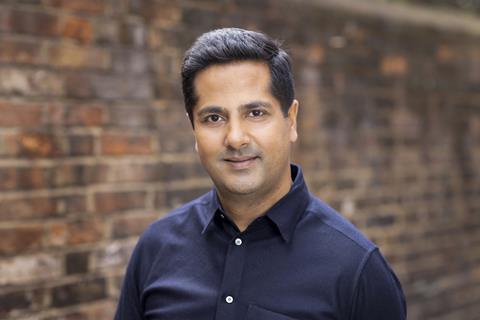
Housing is in crisis. The cost of buying and renting is going up and neither the private or public sector is building enough new homes to meet current needs. We need to embrace alternative models that empower people to take back control of their own housing and lives.
Unlike most other forms of housing supply, community-led housing is where people shape their own environments rather than having those environments imposed upon them. The word ”community” comes from the Latin “communis”, meaning “common, public, shared by all or many”. But the reality of a true community is more than these words.
For me, community is about providing support for one another. When a community is empowered, it frees people to fulfil their full potential. Community-led housing should enable people to support one another to shape their environments and lives.
Housing cooperatives represent a way to provide affordable homes for people whose other choices might be limited to the private rental market
One way to facilitate community-led housing is by establishing a cooperative. There are 685 housing cooperatives in the UK, with close to 70,000 members. Cooperatives are not-for-profit, democratic organisations run for and by their members. They have developed out of a desire to do things differently, in a way that genuinely serves communities.
Housing cooperatives represent a way to provide affordable homes for people whose other choices might be limited to the private rental market. They rely partly on the self-help efforts of members to reduce costs.
During the 1970s a new wave of cooperatives began to provide housing directly for members in the UK. In the 1980s, as councils were prevented from building homes, the government offered some limited grants to cooperatives.
But the development of new housing cooperatives practically ceased in the 1990s when the political agenda changed, and grants were reduced. Despite this, some cooperatives still developed without government assistance, using member loans and mortgages to raise funds and growth.
Community Land Trusts (CLTs) are a form of community-led housing which follows this tradition and began to grow in the UK in the early 2000s. They are based on a model created in the United States in the 1960s, the origins of which are linked to the civil rights movement.
CLTs are a form of community-led housing, run by ordinary people to own land and develop homes as well as other assets important to that community, such as community enterprises, food growing or workspaces.
The Rural Urban Synthesis Society (RUSS) is a CLT with the aim of creating sustainable community-led neighbourhoods with affordable housing. Kareem Dayes drew on his experience of living in Sanford Housing Cooperative to gather a community of supporters and raise funds to incorporate a Community Benefit Society in 2009.
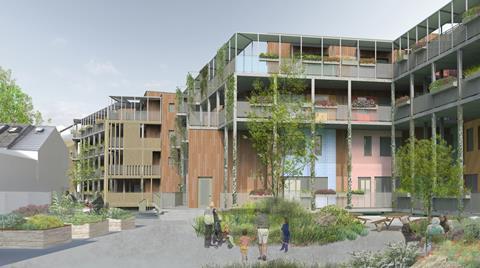
As founding chair, Kareem helped to build the membership, giving anyone the opportunity to become a member of RUSS by buying a £1 share. This in turn gave them a vote on the decision-making board.
RUSS now has an active membership of over 800 members, running education and outreach programmes. The level of organisation has also grown significantly, hiring consultants, and employing staff while continuing to be volunteer-run and maintaining open member meetings.
RUSS’s ambitious Church Grove scheme of 36 homes offers self-build opportunities for local people based in Lewisham, south London. RUSS became aware of the vacant site, which had previously been used as a special needs primary school, in 2013 and asked Lewisham council to consider a community-led self-build project at the site.
The council eventually sought a non-profit community-led development partner through an OJEU process which met their requirements in terms of affordability and approach to community involvement.
RUSS Community Land Trust (CLT) was selected through the OJEU process to enter into a development agreement and 250-year lease in 2016. This arrangement gave Lewisham council certainty that the scheme was legally bound to deliver these social outcomes, which provided the confidence to take less than best consideration for the site. This enables the homes to be significantly cheaper than others in the area, while their affordability will be protected in perpetuity by the trust.
RUSS received an early-stage grant from the GLA to develop its proposals and hire consultants. It worked with Triodos Corporate Finance to set out a viable budget, and cash flow forecast.
A guiding principle for the organisation is that residents should be involved in the design and construction of the project and it should create opportunities for project management and building training
Loan finance from social investors will pay for the construction of the homes and, after completion, will be repaid by the residents entering shared equity homes via mortgages they secure. A long-term loan will be required to cover the remainder, which will be paid for by the income generated by the properties for rent.
Resident assessments are carried out by the Parity Trust, a charity that helps people on low incomes into home ownership. It assesses proposed residents’ needs with their ability to raise a deposit and ensure they can sustain mortgage repayments or rent along with bills, service charges and council tax.
A guiding principle for the organisation is that residents should be involved in the design and construction of the project and it should create opportunities for project management and building training. Working closely with stakeholders, Architype took the scheme through its initial planning stages and prepared the first package of tender information. Shepheard Epstein Hunter were then appointed to undertake negotiated revisions and take the project to site.
The scheme will include 33 homes which range from one to four-bedroom properties, as well as a community hall, office and kitchen to accommodate community meetings, performances and childcare.
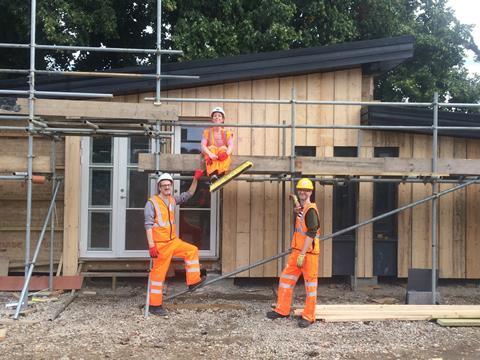
They recently crowdfunded for a self-build community space which will become a sustainable construction demonstration project. Once built, the RUSS School of Community Led Housing will run workshops to pass on acquired knowledge to others looking to start their own community-led housing projects. RUSS is an example of how community-led housing can give people the power to control what matters to them.
Why is community-led housing an important alternative to mainstream housing? Homes that are genuinely affordable to rent and buy mean communities are not displaced, young people can have security, and local businesses and schools remain open.
As affordability is protected in perpetuity, future generations will benefit from them. Housing designed and built in this way will truly consider what people really need to live happily and independently above the requirements to make a profit.
Housebuilding and the planning system have been dominated by a few large players for too long, and the lack of diversity means normal people are bearing the brunt. Community-led housing is for everyone, shaped by them. It is built with people in mind, helping them to support one another in everyday life and to create a more sustainable future.
Postscript
Satish Jassal is founder and director of Satish Jassal Architects. He is a design expert associate for the Design Council, sits on the Harrow design review panel, is a Fluid diversity mentor and a trustee of CDS Cooperatives housing association


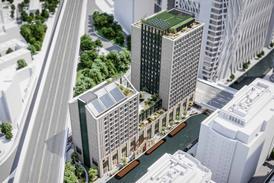
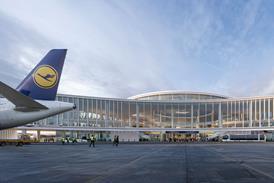
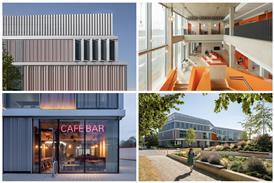
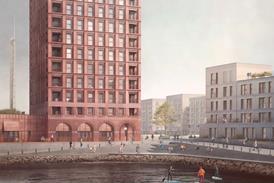










2 Readers' comments